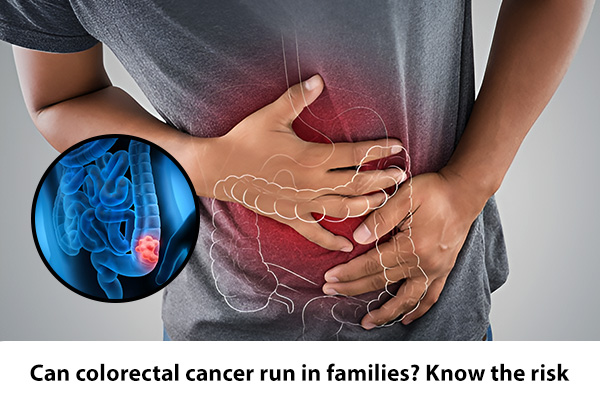You have probably heard someone say, “It runs in the family.” And while that phrase often pops up in lighthearted chats about curly hair or high cheekbones, it gets a lot more serious when we are talking about something like colorectal cancer.
You might ask, if my parents or siblings had it, does that mean I am next? When it comes to colorectal cancer, knowing your family’s medical history will help you understand your risk and protect yourself better with the help of a gastrointestinal oncosurgeon in Kolkata.
Is Cancer in Your DNA?
If a first-degree relative (a parent, sibling, or child) has been diagnosed with colorectal cancer, your own risk could double or even triple to someone with no family history at all. And if multiple close relatives have been diagnosed, the risk rises even higher.
Why? Because shared genes play a big role. Some families carry conditions like Lynch syndrome or Familial Adenomatous Polyposis (FAP), genetic disorders that make people more prone to developing polyps in the colon and rectum, which can turn cancerous over time. These conditions often go undetected until someone in the family gets seriously sick.
But even if you don’t have a known genetic syndrome, a strong family pattern can still mean your DNA has abnormalities that increase your cancer risk.
Lifestyle Plays Its Part, Too
Yes, family history matters but it is only part of the picture. Lifestyle, diet, smoking, and even gut health play a role too. So, if you are someone with both a strong family history and, let’s say, a deep love for processed meat, it might be time to check in with a doctor for a personalized risk assessment.
Even if your family history is clean, certain risk factors like inflammatory bowel disease (IBD), type 2 diabetes, and a sedentary lifestyle can press that risk upward.
Signs You Shouldn’t Ignore
Just because something runs in the family doesn’t mean it will knock at your door silently. Many times, colorectal cancer shows signs before it fully develops. These include:
- Persistent changes in bowel habits
- Blood in the stool
- Unexplained weight loss
- Fatigue
- A feeling that your bowel doesn’t empty completely
When and Why to Screen?
Colorectal cancer is treatable when diagnosed early. In fact, regular screening can even prevent it by spotting polyps before they turn cancerous.
Don’t wait until 50 to get screened if you have a family history. Guidelines suggest screening 10 years earlier than the age at which your relative was diagnosed. So, if your father was diagnosed at 45, you should consider getting checked by 35.
Colonoscopy remains the gold standard, but other screening options like stool-based tests (FIT, gFOBT) or virtual colonoscopies are helpful, too. Your doctor will recommend what suits your health history best.
What You Can Do If You Are at Risk?
Having a family history doesn’t guarantee you will get colorectal cancer, but it does mean you need to be more careful. That means changing your diet, getting more physically active, and scheduling routine screenings. More importantly, it means getting advice from a specialised doctor like Dr. Sanjoy Mandal, a leading gastrointestinal oncosurgeon in Kolkata who offers both preventive consultations and advanced treatment options for colorectal issues. Whether you are in the high-risk bracket or just want peace of mind, he is someone you would want to consult.
